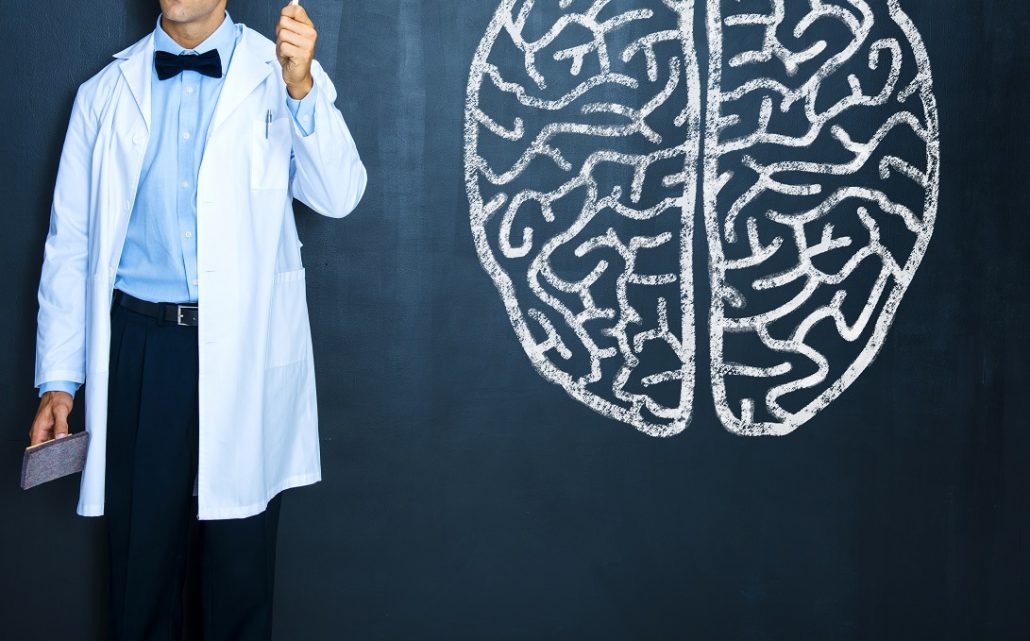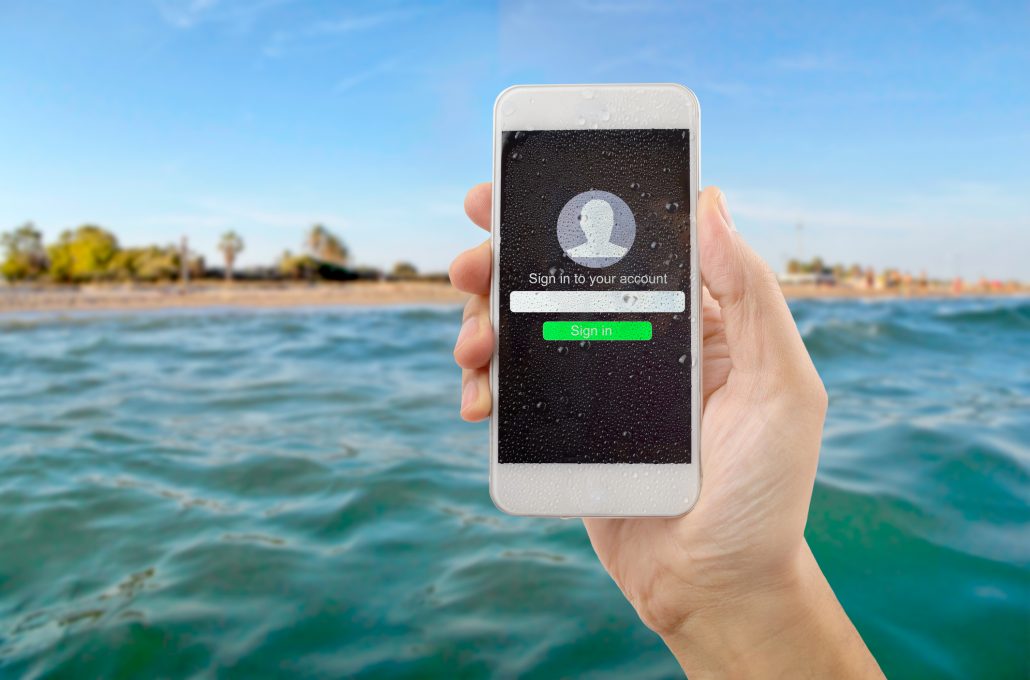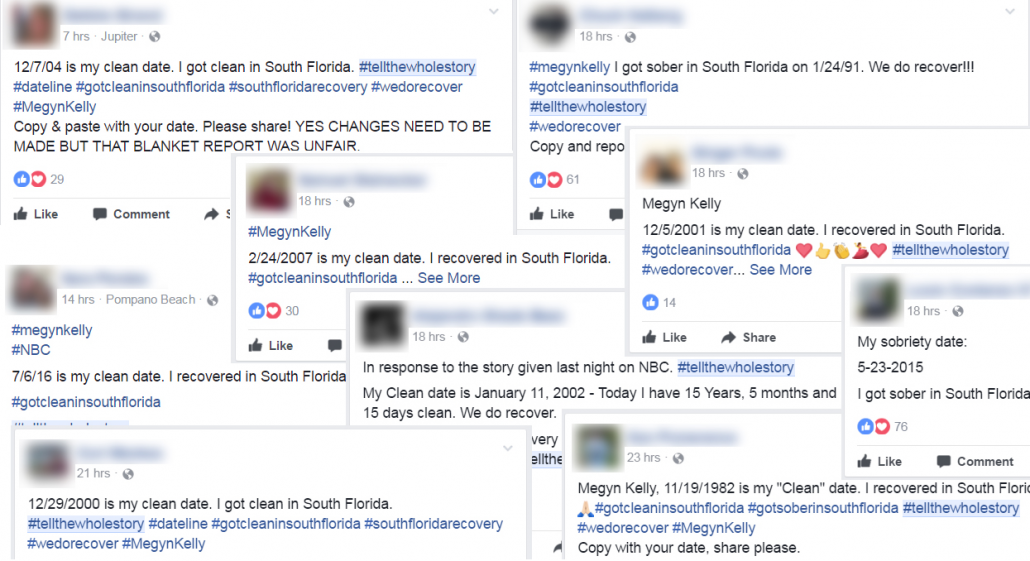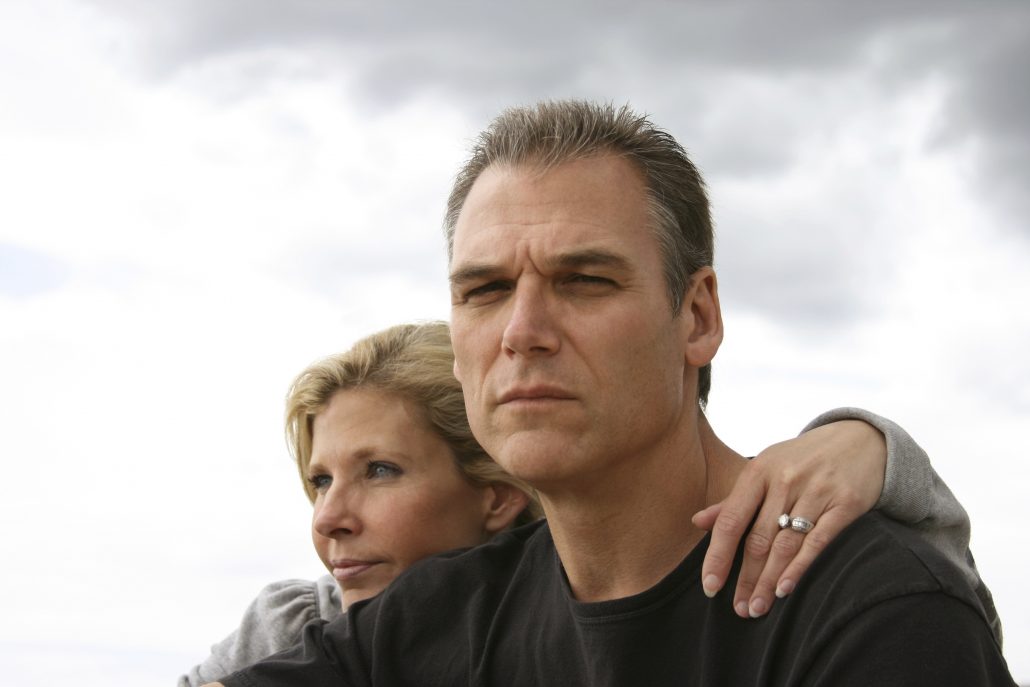by Justin Mckibben | May 31, 2018 | Addiction, Addiction Medicine, Addiction Stigma, Addiction Treatment, Bill Nye, Celebrity, Drug Abuse, Stigma

That quirky Science Guy with those theoretically-funky and quantifiably-fresh bow ties from your childhood is back to work making science fun with the help of celebrities and strange experiments. Since 1993, Bill Nye has been trying to teach kids, and the world, about the importance of exploring science. Now, with two seasons of his Netflix series Bill Nye Saves the World already in the bag, our boy Bill has made his way to a hard-hitting topic that has a huge impact on America today- addiction. And according to the science guy himself, one of the biggest myths he is out to debunk is that addiction is a choice. In fact, this kind of stigma may be one of the single greatest hurdles for those who need treatment.
Now we can admit that Bill Nye is not necessarily an authority on mental health or behavioral science. However, the American science communicator began his career as a mechanical engineer for Boeing Corporation, inventing a hydraulic resonance suppressor tube used on 747 airplanes. He eventually left the company to pursue a career in entertainment, and following the success of his show, Nye continued to advocate for science. He became the CEO of the Planetary Society and helped develop sundials for the Mars Exploration Rover missions. So while he may not be an expert himself, it is safe to say he is a smart man who knows how to do his research.
In a recent interview with The Fix, Bill Nye shared some of his thoughts on some of the most crucial questions we have to examine when looking at addiction and its effects. Beyond that, we look at some of the topics covered in the Netflix piece.
Bill Nye Acknowledges the Prevalence of Addiction
One of the first things Nye does is to point out how widespread the issue of addiction truly is. When asking his studio audience if they know someone living with addiction, whether in recovery or not, almost everyone in the room raised their hands. Nye tells The Fix,
“Addiction is a huge problem for our society. It’s very expensive. You have addicts getting addicted to all sorts of things and they become unproductive, they destroy their families, and they, for better or for worse, have very low qualities of life,”
Bill Nye emphasizes that addiction is not limited to a specific economic or social class, sharing a story about the wife of a close friend. This was a person who became addicted to the powerful opioid Oxycontin after breaking her ankle. This family quickly fell apart due to the addiction, despite being successful and affluent.
“It was horrible. It went on for years and years…she got into harder and harder drugs. She was an accessory to murder with a drug dealer, and this was a family that was very well off because of their success and careers. It was really heartbreaking.”
Throughout the segments, Bill Nye continues to expand on the brain’s involvement in addiction. He even bring in people to discuss treatments, and talks about behavioral addictions.
Addressing Choice and Changes in the Brain
Early on in “The Addiction Episode” of Bill Nye Saves the World, the science guy makes a point to distinguish from “really liking chocolate or re-watching episodes of Game of Thrones” and “real conditions that do real harm.”
He immediately points out that our society often believes addiction is an obvious choice, an avoidable weakness, or a moral failure. If you have been awake for the past few decades, you have probably seen this opinion expressed at some point. From lengthy articles like this one (but with better writers) to viral videos on social media featuring some guy yelling at a camera phone because it makes him an expert, people have argued that if people were strong enough they would fix themselves. Bill Nye says,
“I’m here to tell you that just ain’t so.”
Now, while Bill Nye may not be an addiction expert himself, he has surely done his homework over the years by interviewing various experts in the field of addiction medicine and recovery. This isn’t even the first time he’s tried to debunk the myth of addiction being a choice. Years ago he did a similar episode addressing addiction on the show The Eyes of Nye, which featured addictionologist, Dr. Drew. In this past interview, Dr. Drew makes a very strong argument stating:
“The definition of a disease, to me, would be an abnormal physiological process brought on by a relationship between the genetics of the individual and the environment that creates a set of signs and symptoms that progress in a predictable way which we call ‘natural history,’ and by effecting the natural history we can create a predictable response to treatment. That is a disease, and addiction does fit that.”
On Bill Nye Saves the World, he uses his trademark fun and goofy way to explain how dopamine released in the brain’s reward center by particular behaviors over time actually changes the brain, with the help of orange trees and a light-up LED brain. Nye states,
“When and if this happens depends on both the hand you are dealt- your genes- and what’s going on around you- your environment- it’s akin to the old question of nature versus nurture. Except with addiction, it’s both. It’s nature… and nurture!”
Bill Nye explains later on how the human ability to adapt is intimately connected to addiction, adding that while we can get used to just about anything when our brains and bodies adapt to a drug it makes quitting incredibly difficult to accomplish, especially when you factor in withdrawal symptoms.
Putting Addiction into Perspective
But good old Bill doesn’t expect you to just take his word for it, either. Throughout the episode he speaks with various people concerning the truth about addiction and different kinds of treatment for addiction. The conversations include people with various points of reference, including:
-
Maria Bamford, comedian/actress
Bamford sits with Bill to discuss her own experience with what she calls an “addictive process”: an eating disorder. She talks about finding a 12-Step program at 21 years old, and the value she has found in connecting with others.
-
Cara Santa Maria, science communicator and journalist
Cara Santa Maria talks about the importance of having individualized treatment options that go above and beyond the traditional 12 step programs. She also believes that people should also consider connecting addiction to deeper psychological issues, such as trauma.
Dr. Carl Hart advocates that there is a real need for more comprehensive assessments concerning addiction. Dr. Hart believes the vast majority of people who use drugs, including heroin, do not become addicted. Dr. Hart believes also putting too much focus on the drugs and not enough focus on the behaviors makes treatment less effective.
-
Lieutenant Robert Chromik Jr. of a Sherriff’s Office in Ohio
The officer from Ohio states that his precinct has been working to help people get clean instead of arresting them. He says that out of 2,400 “clients” involved in the program, 81% are now living clean. Lt. Chromik also agrees with his fellow panelists that specialized treatment is essential because there is no one-size-fits-all answer.
In the end, the episode is pretty interesting. This writers only critque would be that the ending itself seems almost incomplete. It includes an unrelated, but pretty cool segment about aquaculture with a guest scientist. Still, without a definitive signing-off moment to summarize the concepts Bill covers, the impact of a scientific understanding of addiction almost feels lost. However, between the piece from The Eyes of Nye and this new episode, there is a lot of interesting information that is essential to our society learning to treat addiction, and those who are suffering, better. Overall, one of the most important parts of the conversation is the emphasis on compassion and supporting effective and individualized treatment options. Bill Nye and the many individuals throughout the episode present various perspectives on the issue of addiction. Surely, not all these people agree on everything. Still, the episode works hard to offer a simple explanation of the scientific evidence in the brain and the body as to how addiction really works. Hopefully, more people can appreciate the science behind it.
Thanks Bill. Science still rules.
Another important take away from this episode is that personalized treatment is a unique and life-changing tool to helping get people off of drugs or alcohol. If you or someone you love is struggling, there is professional and innovative help for you today. Please call toll-free now.
CALL NOW 1-888-922-5398
by Justin Mckibben | Jun 28, 2017 | Addiction Treatment, Alcohol Addiction, Inpatient Treatment, Internet, Social Media, Stigma

When news travels at the speed of social media there isn’t much of a waiting period for responses to issues that strike a nerve with people. As we were writing and publishing our first response to the story aired by the NBC News Investigation host Megyn Kelly, along with other media outlets such as The New York Times, a fire was catching that lit the internet up.
While we already wrote a response to the Megyn Kelly piece, we wanted to also highlight the amazing response from the recovery community!
The Megyn Kelly story was focused on exposing the fraud and corruption that has infiltrated the addiction treatment industry in South Florida, utilizing interviews with local law enforcement, first responders, politicians and victims of patient brokering and illegitimate sober homes. While it may have been an eye-opener to some in other states, this wasn’t news to the population of South Florida. These tragedies and indiscretions have been talked about for years now. The topic is still causing contention and debate within the community.
However, when the piece aired just this past weekend, many of South Florida’s recovery community set aside much of the debate to answer what was being said.
South Florida Recovery on Social Media
Facebook turned into a major platform yesterday as new hashtags went viral, including:
- #Igotcleaninsouthflorida
- #tellthewholestory
- #southfloridarecovery
- #wedorecover
A huge number of these posts were attached to personal stories of suffering, recovery and astounding accomplishments. Others were attached to photos. Many posts demanding that the media acknowledge the voice of the actual people in the South Florida recovery community. Most of the posts included people sharing their sobriety dates (meaning the day they finally stop drinking or using drugs).

Photo: Facebook posts responding to Megyn Kelly
There is a clear message here- the South Florida recovery community is strong and willing to take a stand.
This profound and inspiring response has been completely organic. One after another people from many areas, especially Delray Beach, started sharing their experience with treatment and recovery in South Florida. Megyn Kelly was tagged in these posts, so surely her social media team got pretty busy sifting through all those notifications.
Some were from people with several months clean and sober, other posts were people with a couple decades of recovery time. There were those who came to Megyn Kelly’s defense, while others took the whole thing as an opportunity to attack her… or the people responding to the story. Still, the presence of South Florida’s own population of people overcoming addiction was making a lot of waves.
The Megyn Kelly Conversation
One thing we should acknowledge about the piece on Megyn Kelly’s show… is it worked.
Granted the camera and narration do not paint the most flattering picture, but it revitalizes an important conversation- safeguarding the addiction treatment industry in South Florida. It worked because we can at least take something from it; the South Florida treatment industry needs to work together with community leaders, officials and people in recovery in the area to help make things better.
However, people in the recovery community did take offense to statements made by people during interviews that implied people were not coming to South Florida and getting better. It might not feel fair to a lot of people who thrive in South Florida’s recovery community that they felt marginalized or misrepresented. Some of the comments suggest that people sent to Florida are more likely to end up dead than they are to end up better, but there seems to be a lot of people with something to say about that.
After hearing the Megyn Kelly story the recovery community in South Florida chose to take the opportunity to stand up for one another. Overnight there was an up-welling of support for those who have come to South Florida, made a life for themselves after treatment and become active members of the community.
It’s About the People
More importantly, this is all about the people who have recovered and the people who are most desperate for it. We want people to know that there are unethical and illicit businesses in every state that exploit this same system, but there are world-class addiction treatment programs in South Florida that take great pride in being part of the solution, not the problem.
This is about the people who have changed their lives, acknowledging their strength, hope and adversities. It is about the people who want to believe that there is a safe place with people who care about improving themselves and each other. We have to let people know what to look for, how to ask the right questions and how to make educated decisions on how to best treat them or their loved ones.
For a more detailed look into the difference between addiction treatment programs and sober living facilities, download our FREE e-book:
5 Critical Mistakes When Picking a Treatment Center and How to Avoid Them
DOWNLOAD FREE E-BOOK
We are proud of how the recovery community of South Florida has responded to the Megyn Kelly story. Part of fixing the issues facing people with addiction is to strip away the stigma of substance use disorder, and a keystone to fixing the stigma is education and awareness. South Florida stood up and told the world #wedorecover because they know if we #tellthewholestory then the entire nation may see that addiction treatment is about healing and helping people together.
South Florida recovery set social media on fire a few nights ago… because South Florida recovery is full of absolutely amazing people too! Imagine if we did that all the time! Imagine if we took it upon ourselves to make this happen every chance we got! Who might get the help they need because of what we share?
My name is Justin Mckibben
My sobriety date is November 28th, 2013
#igotsoberinsouthflorida
Every recovery community has its faults, but the recovery community of South Florida is an amazing place to start your journey to change that could save your life. If you or someone you love is struggling, please call toll-free now.
CALL NOW 1-888-922-5398
by Justin Mckibben | Jun 6, 2017 | Addiction Stigma, Family, Parenting, Stigma, Teen Drug Abuse

(This content is being used for illustrative purposes only; any person depicted in the content is a model)
Having a family member or loved one struggling with drugs or alcohol is an incredibly tough place to be. For parents, it can be one of the most emotionally difficult experiences. Having a child who is using drugs or alcohol can be terrifying, but it can also cause a lot of internal conflict and self-doubt. Loved ones frequently find themselves looking for answers to questions they never knew to ask, and wondering how they can help make a difference. The parents of addicts have to face a lot of unique and intimate obstacles, but there are some very important things to remember when facing this painful situation.
To learn more about how to handle the difficult emotions and situations parents and family members face with an addicted loved one, download our FREE e-book
“What is the Difference Between Helping and Hurting”
DOWNLOAD FREE E-BOOK
Here are 5 things we want the parents of addicts to know.
-
You are not alone
When struggling with something as personal and as frightening as having an addicted child, people can feel separate from others. Many parents feel guilty, ashamed or embarrassed when their child is struggling with substance use disorder. This embarrassment or shame can lead to feelings of isolation.
The truth is there are countless families all across the nation going through the same thing. You are not alone. There are support groups specifically for the families and loved ones of addicts, and large networks of people seeking to provide information and support to parents of addicts who don’t know what to do or how to help.
In the face of the opioid epidemic in America, thousands of families have stepped up to advocate for better resources to educate the public about the dangers of addiction, and for better treatment opportunities. Nationwide organizations created by the parents of addicts fight to raise awareness, while treatment providers put an emphasis on the family being active in the recovery process.
-
It is not your fault
Of course parents take responsibility for their children, because it is their duty when they are born to protect them, raise them and help them grow to their potential. So it is no surprise that parents of addicts so often blame themselves for what their child is going through.
Many ask- what if I had been better? Should I have been more (or less) strict? Should I have been more (or less) affectionate? Parents of addicts can beat themselves up very easily with wondering what if, but the truth is it is not your fault.
Yes, many experts say there is a genetic predisposition, but everyone has one. It isn’t your genes, it’s a combination of unique DNA and unique circumstances. Yes, the environment matters, but again there is no one-size-fits-all formula to substance use disorder. People of all walks of life, in every neighborhood and from every kind of home suffer from addiction. Therefore, there is no exact parenting technique that can guarantee a child will never become addicted.
Most parents of addicts are the greatest version of a parent they possibly can be, but addiction does not discriminate. Helping more parents and family members to see this is another way we can overcome the stigma of addiction.
-
You can help overcome stigma
A lot of that shame and isolation we talked about above stems from the stigma of addiction. Some people still think substance use disorder is a moral failing or character flaw. They believe becoming addicted is a choice people made, not an illness people suffer from. This stigma makes people afraid to be open with others about their child’s addiction, which cuts them off from peer support.
It is important for the parents of addicts to help destroy the old stigmas that give people a false idea of what addiction really is. Parents have the power to share their experience, strength and stories of hope from a unique perspective. Addiction is one of the most misunderstood diseases in modern times, but the more parents of addicts share their stories, more awareness and understanding can help create innovations in treatment.
By being open about the difficulties your child has faced instead of hiding from it, not only can you be a warning to other families, but you can also empower them to understand that they too are not alone. Parents have a unique potential to stand up for their children and for each other to overcome stigma.
-
You have to take care of yourself
As a parent, it is absolutely understandable that your instincts tell you to put your own health and well-being after that of your child. But the reality is that if you are physically and emotionally exhausted, stressed out and unhealthy then there is no way you can provide the kind of help and support your child needs. You cannot be useful to anyone, especially your child, if you have not taken care of yourself.
If the parents of addicts can prioritize their own well-being, then they have the energy and resources to be more present and helpful to their addicted child. Allowing yourself to be as well as possible is not neglecting your loved one, it is preparing you for the opportunity to make a difference in their life.
This includes setting boundaries with your children, and being honest with them about what you are going through under these circumstances. It is not always easy, but it does matter.
-
We want to help!
At Palm Healthcare we want to make a difference in the lives of individuals and families who are struggling with drug or alcohol abuse and addiction. We believe in holistic healing as a stepping stone to real, lasting recovery. Palm Healthcare Company believes in the importance of uniting the parents, children, siblings and loved ones in the cause of progressive action toward amazing solutions that can not only save lives, but change them forever. For several years our facilities have worked to transform the lives of addicts and those closest to them.
Our Family Program is uniquely designed with healing for you and your loved one in mind. The Family Program focuses on improving communication, compassion, understanding and the overall support and of the entire family. We encourage all parents of addicts to research the Palm Healthcare Company Family Program and reach out to us with any questions.
Addiction doesn’t just affect the person who is drinking or drugging, it affects all those that are close to that person. Emotionally, physically, financially, the toll can be significant. If you or someone you love is struggling with substance abuse or addiction, please call toll-free now.
CALL NOW 1-888-922-5398





